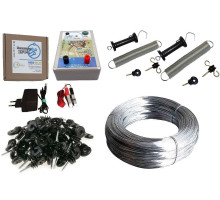Choosing between buying and leasing land is an important decision for businesses, investors, and individuals planning to develop or use land resources. Both options have their advantages and disadvantages that can impact your financial and strategic goals. In this publication, we will look at the main advantages and disadvantages of buying and leasing land, as well as factors to consider when making your decision.
Advantages and Disadvantages of Buying Land
Advantages of Buying Land
- Long-Term Investment: Buying land is a profitable long-term investment. It allows you to preserve an asset that tends to increase in value over time. This can be especially useful for building capital or for future sales. For example, the opportunity to buy a plot of land in Ivano-Frankivsk can be a profitable step in your investment strategy.
- Control and Ownership: Owning land gives you complete control over it. You are free to develop, modify, or use the land as you wish without the restrictions that may be imposed by leasing.
- Possibility of Resale: Land can serve as an asset that can be resold in the future. If the market changes, you may benefit from the increase in the value of the land.
Disadvantages of Buying Land
- High Initial Costs: Buying land requires a significant financial investment. The purchase price, taxes, and registration costs can be quite large.
- Owner's Responsibilities: The landowner bears all costs for the maintenance, taxes, management, and possible improvement of the site. This can be financially burdensome and require regular expenses.
- Risk of Changes in Market Value: The price of land can fluctuate depending on market conditions. There is a risk that the value of the land may decrease, which will have a negative impact on your investment.
Advantages and Disadvantages of Land Leasing
Advantages of Land Leasing
- Low Initial Costs: Leasing land allows you to avoid the large initial costs that come with purchasing. This can be a good option if you are not prepared to invest large sums of money in a purchase. For example, leasing land in Dnipro can be a cost-effective way to use land resources.
- Flexibility Renting provides great flexibility: You can change the location or use the land for different purposes without long-term commitments.
- Minimal responsibilities: As a tenant, you are typically not responsible for large retention costs or taxes, which reduces financial pressure.
Disadvantages of Leasing Land
- Limited control:The tenant has limited control over the land and may be restricted by the terms of the agreement. This may affect the ability to carry out certain changes or projects.
- Temporariness:A lease is temporary and can be terminated at the end of the lease term. This can create uncertainty for long-term projects.
- Rental Costs:Rent can increase over time, which can increase overall costs, especially if you are planning long-term use.
Influencing Factors
Financial Considerations
Your financial capabilities may determine whether it is better to buy the land or lease. Weighing all the costs will help you make an informed decision. Consider the difference between the purchase price and the rent. This will help you understand which option is more cost-effective for your situation.
Purpose of Land Use
Your goals for using the land will influence your choice. If you plan to use it long-term, buying may be more cost-effective, while leasing may be a better option for short-term projects. The type of project is also important. For a business or large-scale development project, buying may be a better option, while for seasonal or temporary projects, leasing may be more convenient.
Market Conditions
Assessing market conditions will help you understand whether buying or leasing is a good option at the moment. Market trends can influence your choice. Consider the development and investment opportunities that both options offer. This will help you determine which option is the most viable.
Legal and Regulatory Issues
Checking the legal aspects and completing the paperwork correctly is critical to avoid legal issues. Consider the tax liabilities associated with buying and leasing and how they will affect your budget.
Conclusion
When choosing between buying and leasing land, it is important to consider all the advantages and disadvantages of each option, as well as financial, legal and market factors. A thorough analysis will help you find the best solution for your needs and goals, which will ensure the success of your project.
0 reviews / Write a review







